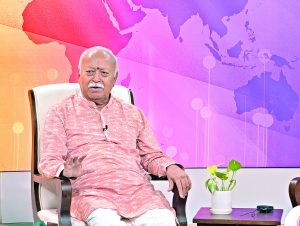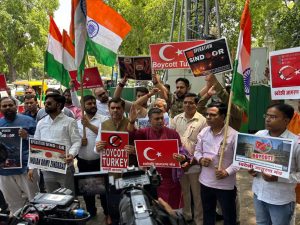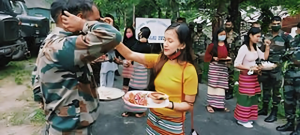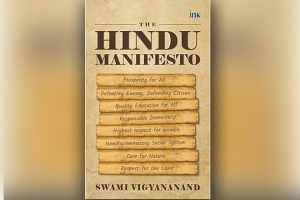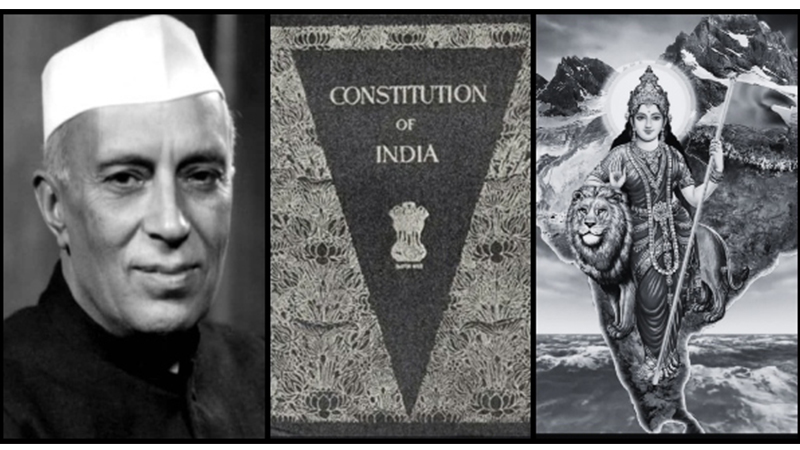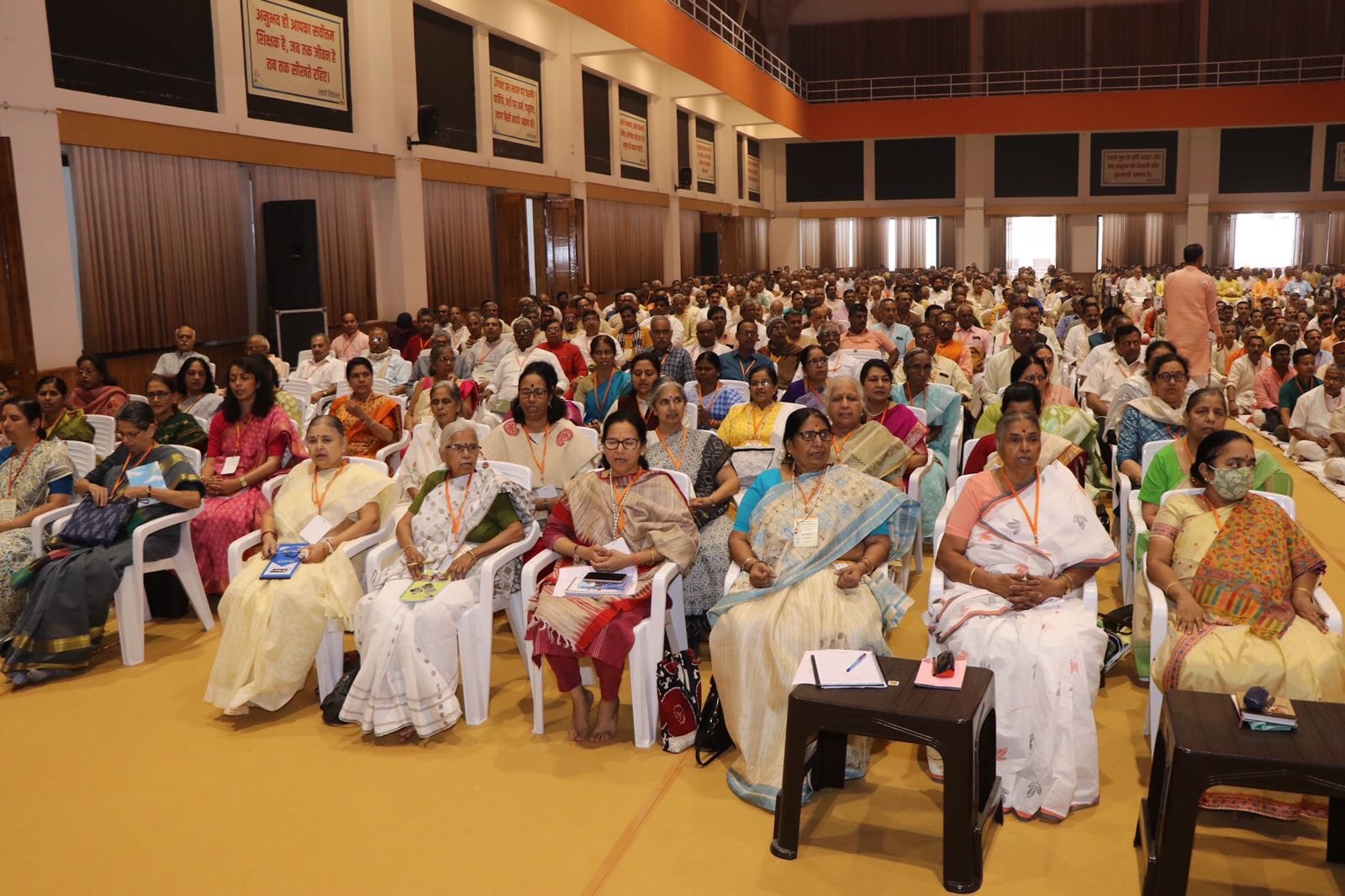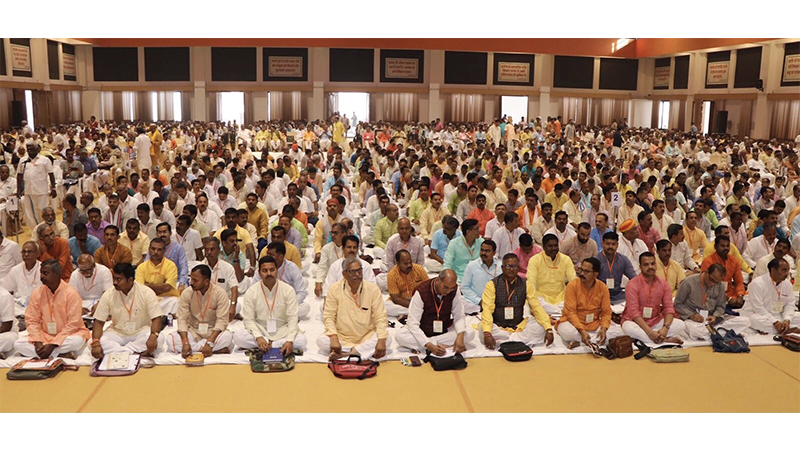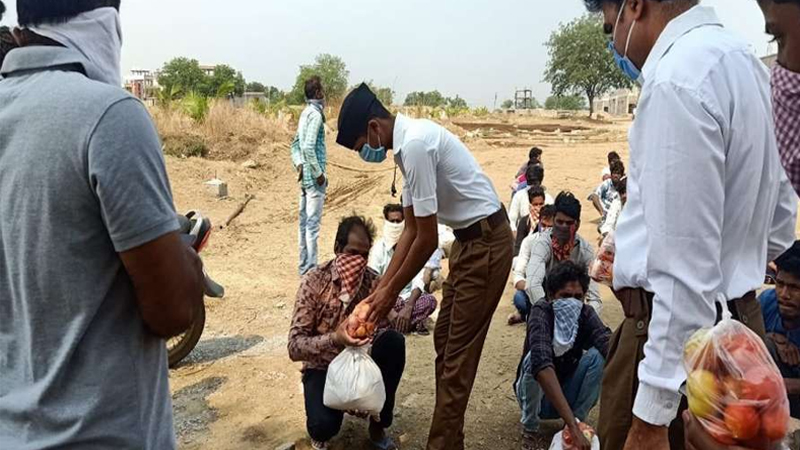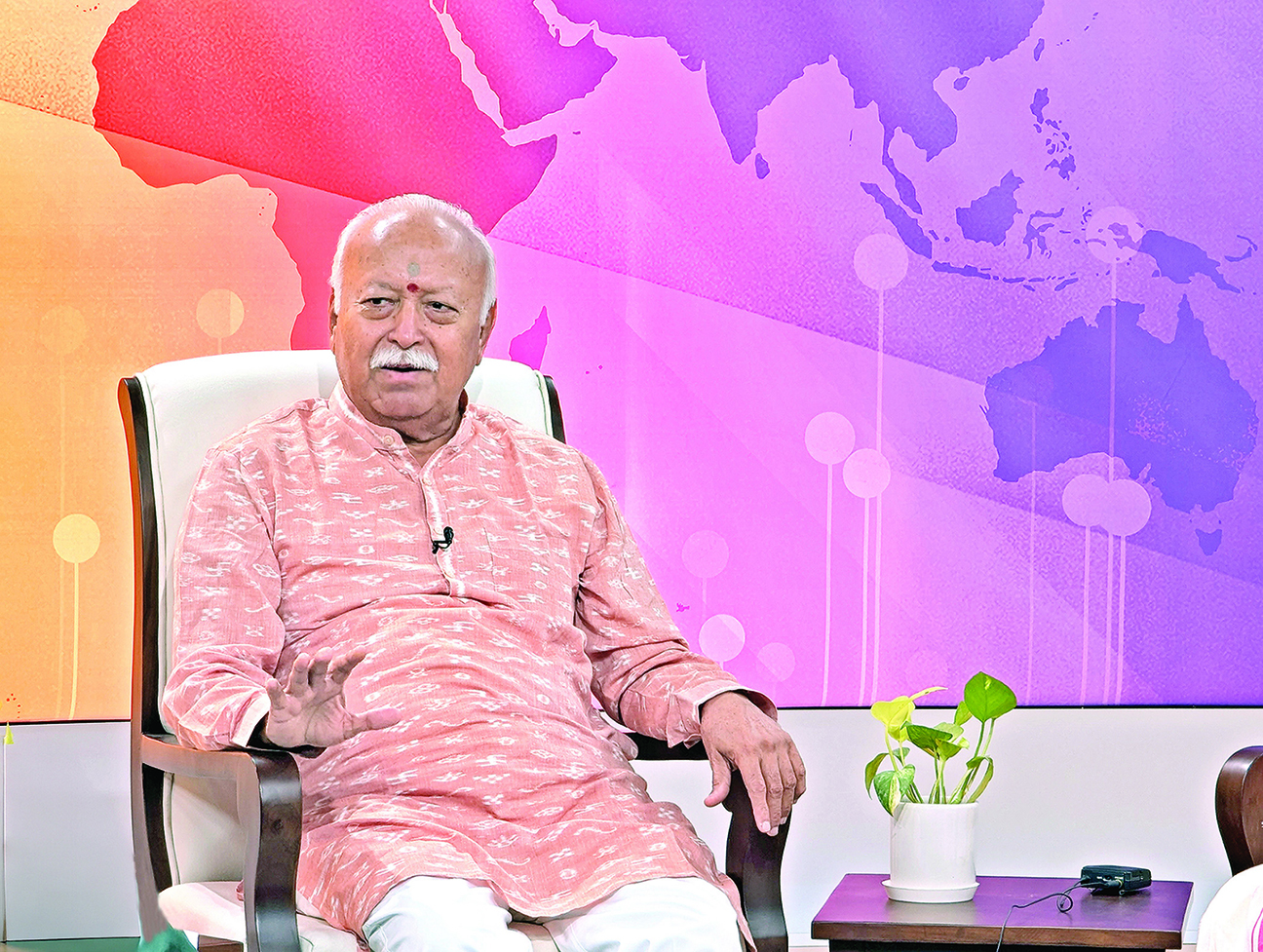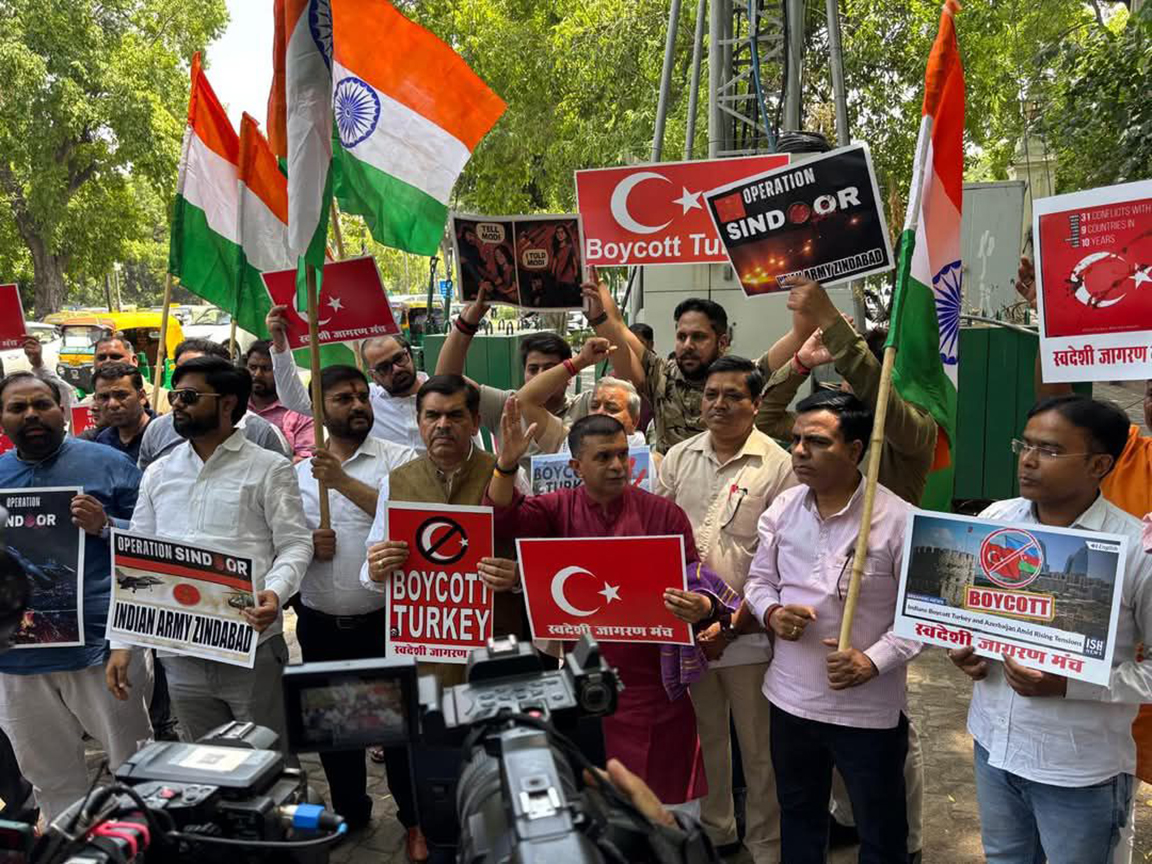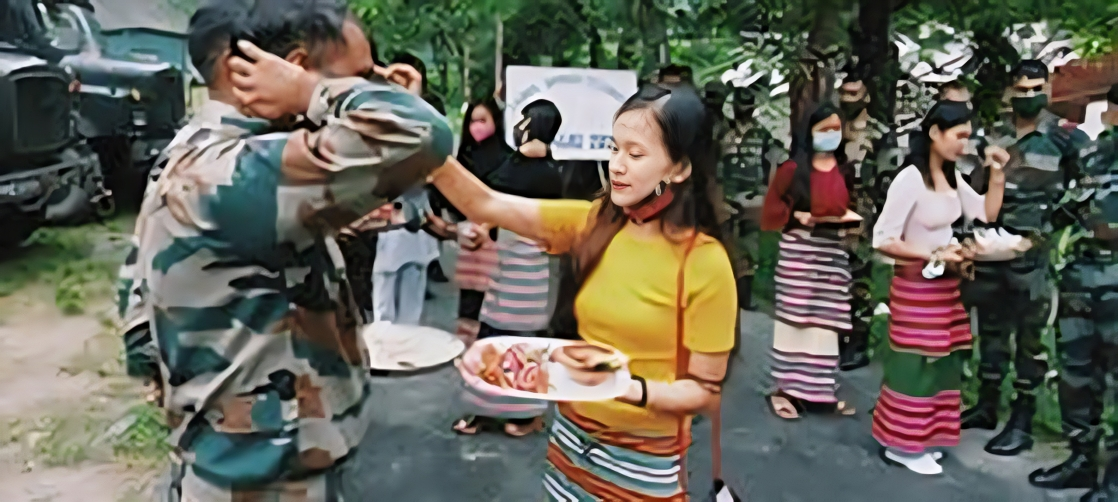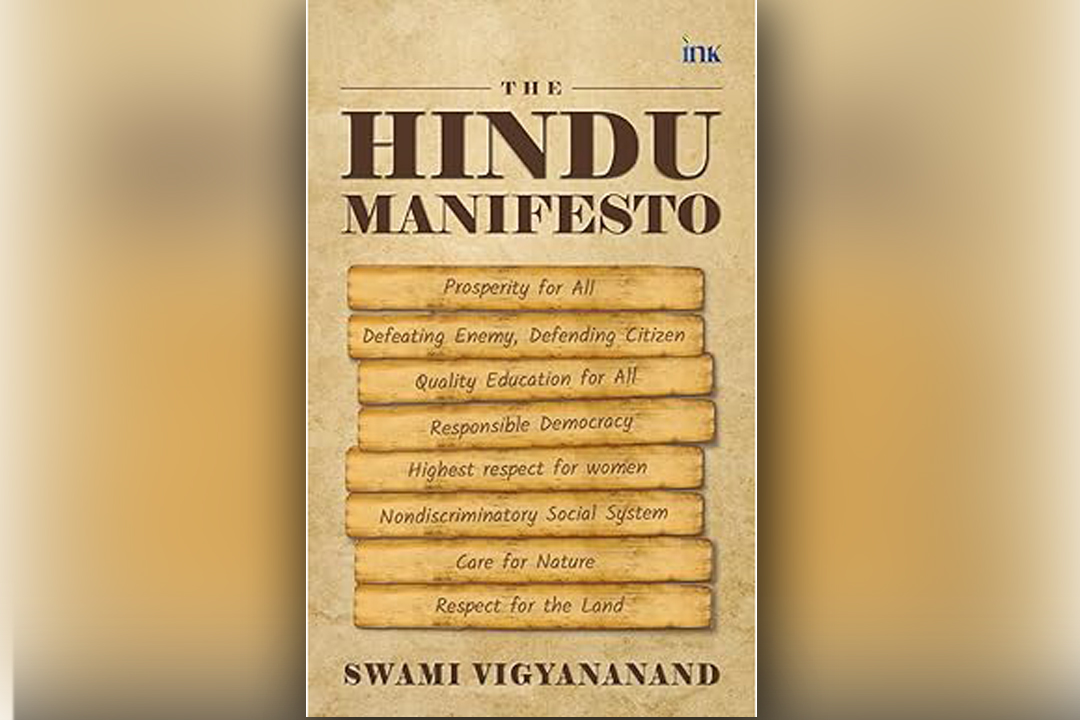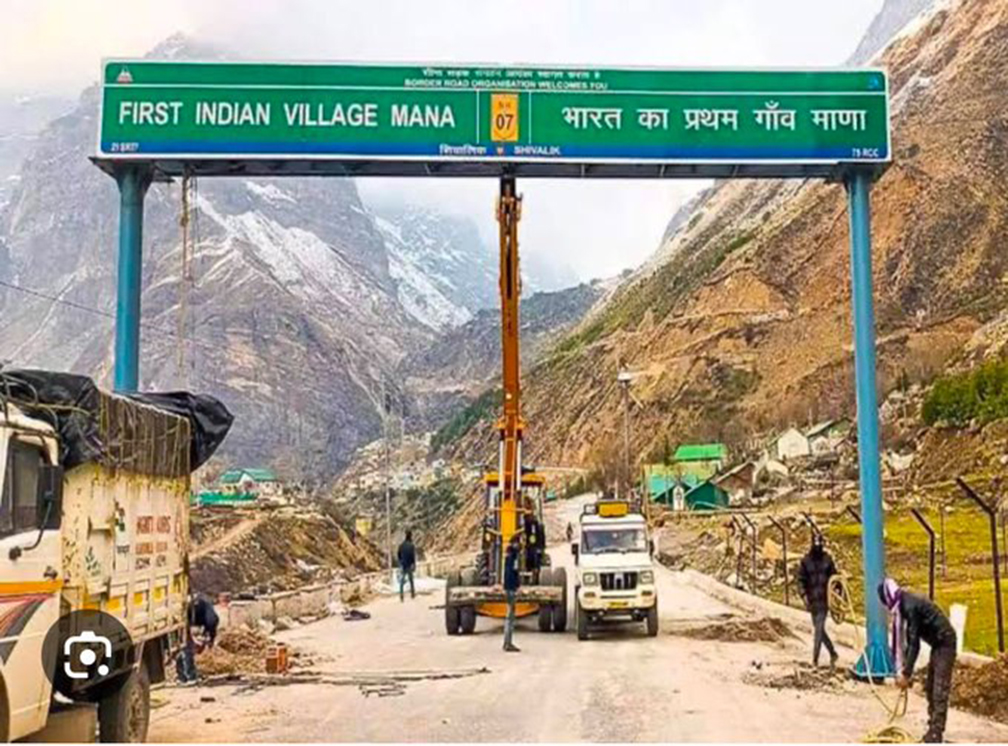Annual Address by Sarsanghchalak Dr. Mohan Bhagwat on the occasion of Vijayadashami (Wednesday, October 15, 2021).
Updated: March 9, 2023 2:47
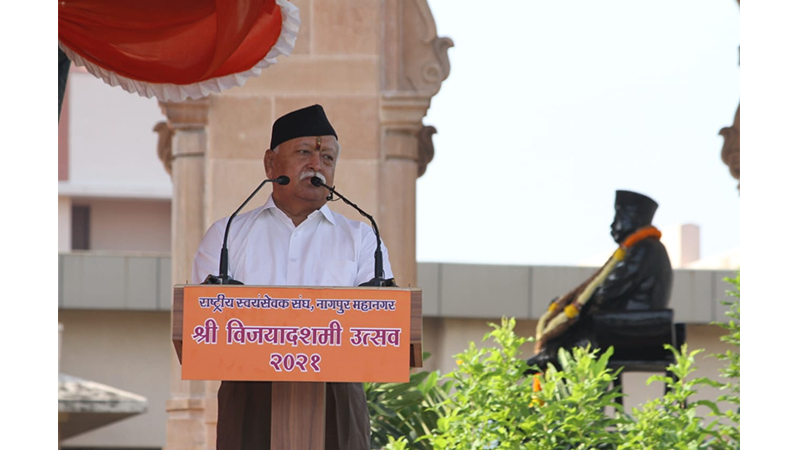
Vijaydashami is a Bharatiya festival celebrated all over the country. It is also the RSS’ foundation day as the organisation was founded in 1925 on the auspicious occasion of Vijaydashami(also known as Dussehra). There has been a long tradition in the RSS where the Sarsanghchalak of the RSS delivered an annual speech on the occasion of Vijaydahsami. It helps to understand the worldview of the RSS on various issues and how it is looking at the year ahead as well as beyond that. We are sharing here English translation of the original Hindi Speech.
“This year marks the 75th year of our freedom from foreign rule. We gained independence on August 15, 1947. We took the reins of the chariot of our nation in our own hands to take it forward. That marked the starting point of our journey from Swadheenata (independence/Self-rule) to Swatantrata (Self Model of governance). We are all well aware that we did not gain this freedom overnight. With the essence of Bharat as the basis, bearing similar images of what the independent country would look like, several freedom fighters belonging to distinct castes and communities and from different regions of this landmass made noble sacrifices and penances for the cause. The society too, alongside these brave souls, bore the sting of slavery as one unified unit. Only then all paths – from non-violent movements to armed rebellions – could culminate into the ultimate destination of independence. However, our consciousness worn out of artificial divisions, lack of an understanding of the right meaning of our own Swa-Dharma(self-Dharma), Swa-Rashtra (self-nation) and Swa-Tantrata (self model of governance), lack of clarity, wavered and spurious policies and the colonial diplomatic games played over those policies have imbued an indelible scar of partition in the hearts of each Bharatvasi (resident of Bharat). It is imperative that our entire society, especially the younger generation, takes cognisance of this history, understands, and remembers it. This is not to harbour feelings of animosity towards anyone. We must remember this past so that instead of realising the ill-will of those who wish to deepen the differences and unleash the horrors of the past, we work on restoring our unity and integrity.
Social Harmony
The existence of an egalitarian and non-discriminatory society is a prerequisite for a unified and integrated country. The problem of age-old caste-based divisions is a hindrance in this quest. Several reformations have been initiated in different ways and from different directions to uproot this evil. Yet a total eradication of this problem could not be achieved. Our societal consciousness is still skewed with caste-based sentiments. As of today, the intellectual landscape of the country is far outnumbered by those who are acting contrary to the ones building bridges to promote dialogue and intimacy among people. We must ensure that this dialogue turns out to be positive. All those who dream of an egalitarian and cordial social structure will have to make efforts in this direction. Interfamilial and societal interaction will need to increase. Friendly relations and exchanges among families can promote societal unity and equanimity. Sangh Swayamsevaks (volunteers) are working on building an atmosphere of equality along with fraternity by conducting socially harmonious activities.
Freedom and National Ethos
Dedication towards Bharat’s integrity and unity and the freedom for all human beings have been our central themes of life since antiquity. People have been literally sweating their blood for the same. This year marks the 400th Prakash Parva(birth anniversary) of Shri Guru Teg Bahadur Ji Maharaj. He was martyred for standing up against religious bigotry that was much in prevalence in Bharat then. He was targeted for his efforts to reinstate the cultural norms of the land, viz – freedom of religion and practice of one’s beliefs without the fear of persecution. He was lauded with the title “Hind ki chadar” or “the shield of ‘Hind’.” He was the Sun in the galaxy of the warriors who through the centuries have braved the currents of time and laid their lives to ensure a continuity of Bharat’s heritage of a magnanimous and all-inclusive religious freedom. The sense of pride for such great ancestors, firm dedication for the motherland in whose love they sacrificed their lives and the generous and all-assimilating cultural heritage, so painstakingly conserved, and nurtured by those brave souls, are all cornerstones of our national life.
The term ‘Free Life’ has a definitive connotation in the Bharatiya conceptualisation. Saint Gyaneshwar Maharaj ji of Maharashtra writes in a prayer “Let the wickedness of the wicked come to an end and their actions turn virtuous. Let the dark clouds of distress dispel, illuminating the sense of righteousness in all while fulfilling all the desires of everyone”.
Gurudev Rabindranath Thakur has reinforced this same sentiment in his famous poem by saying-
“Where the mind is without fear and the head is held high;
Where knowledge is free;
Where the world has not been broken up into fragments by narrow domestic walls;
Where words come out from the depth of truth;
Where tireless striving stretches its arms towards perfection;
Where the clear stream of reason has not lost its way
Into the dreary desert sand of dead habit;
Where the mind is led forward by thee
Into ever-widening thought and action.
Into the heaven of freedom, my father, let my country awake.”
When comparing and contrasting the present scenario with this ideal of independent Bharat one realises, our journey from Swadheehnta (independence/Self-rule) to Swa-tantrata (self model of governance) is as yet far from complete. There are elements in the world for whom Bharat’s progress and its rise to a respected position are detrimental to their vested interests. They even wield power in some countries. If the religion that envisions a world based on Sanatan value-system prevails in Bharat then the foul play of those selfish forces will automatically be neutralised. Bharat yields its influence from the Dharmic world-view that has the potential to restore the lost balance in the world and promote mutual cooperation and conviviality. To prevent this, well-organised efforts are going on. A systematic effort is underway to confuse the world and even the citizens of the country, through misrepresentation and propaganda against Bharat’s people, the present scenario, Bharat’s history, Bharatiya culture and the socio-cultural groups that are working for the national rejuvenation of Bharat. Fearful of their impending defeat and a total obliteration, these forces are convulsing and coalescing to execute their operations overtly and covertly. We must see through the conniving of all those groups and cautiously protect ourselves and our society from these psychological snares.
In summary, the crooked minds are up to their same old tricks and search for newer avenues to further their misdeeds. Given their vested interests along with supremacist fanaticism rallying some support, misusing people’s gullibility to misguide them, infuriating people by exaggerating their present and imagined difficulties, creating some or the other form of unrest in the society, constant bickering, quarrelling; spreading terror and creating an anarchic state to revive one’s stale narrative and slap it in the society’s face – these tendencies have been exposed for a while now.
Besides the prevalence of ignorance, ambiguity, and skepticism towards the sense of ‘Swa’ (Selfhood) prevalent in our society, certain newer global developments are fast gaining momentum and strengthening the actions of these selfish forces. Clandestine, uncontrolled currency like Bitcoin has the potential to destabilise the economy of all countries and pose serious challenges. At present unregulated broadcasts of varied material on O.T.T. platforms are open for everyone’s indiscriminate consumption. In the backdrop of the pandemic online education was to be introduced. School-going children are hooked on mobile phones as a rule. In absence of prudence and a regulatory framework, it will become difficult to predict in which way and to what extent will this emerging phenomenon of contact with fair and unfair means sweep our society. However, to what extent anti-national forces wish to use these means is well-known. Therefore, the government must make efforts to regulate these affairs in no time.
Kutumb Prabodhan(Family Dialogue)
At the same time, to exercise effective control over these threats an environment that clearly spells correct from incorrect and moral from immoral must be built in our homes. Innumerable reformers, preachers and socio-religious organisations are devoted to this task. We too can deliberate over these issues along with our family members and develop a behavioural consensus. Sangh Swayamsevaks are also contributing towards this cause by organising ‘Kutumb Prabodhan” (familial dialogue) activities. You might’ve heard or read “Mann ka brake Uttam brake” (Brake on the Mind is the Best Brake). This wisdom alone will be the remedy to the challenges of multifarious attacks over the Bharatiya value system that are diluting our faith and promoting recklessness.
Fight against Corona
All set to combat the third wave of Corona virus, we are also preparing to celebrate the 75th anniversary of our independence. During the second wave of Covid, society once again through its collective efforts exemplified resilience. The second wave was far more destructive and did not spare even many young people. Yet efforts of the men and women who were selflessly dedicated in the service of humankind despite serious health hazards posed by the disease are praiseworthy. The danger continues to loom on our horizon. Our battle with Corona virus is as yet unending; however we are more or less prepared to face the third wave. Vaccines have been administered en-masse and will need to be completed. The society at large is vigilant and Sangh Swayamsevaks along with several other righteous people and organisations have trained workers right up to village level who will maintain vigilance and garner on-ground support in case of emergencies. While on one hand all efforts to combat the impending wave have been made, on the other hand, it is also touted that the onslaught of the final stages is likely to be milder in comparison. Having said this, we must strive to comply with the governmental guidelines and remain cautious at all times.
It appears that neither the government nor the society is of the mindset to restrict day-to-day activities due to the looming threat of Covid. In mere two waves of Covid, the lockdowns have marred the economy considerably. We have the challenge of covering up for previous losses while making financial strides even faster before us. Means to achieve the same are being contemplated and attempted too. Such attempts should be unceasing. Despite the threat posed by the Covid pandemic, our Bharatiya economy is showing the potential and confidence to bounce back. There is even news of quick stabilisation and restoration of trade from many quarters. There is growing confidence that if the government succeeds in ensuring the participation of all the stakeholders then the country will sail through the difficulties smoothly. Simultaneously, this situation can also provide us with an opportunity to resurrect and create a paradigm and model which is based in the principle of Swa- that is Selfhood.
There is a renewal of the confidence and the awakening of our ‘selfhood’ in our society also. The collection drive for Shri Ram Janmbhoomi Temple witnessed an overwhelming and devotional response which is a testimony to this awakening. The manifestation of societal endeavours in different walks of life is the natural corollary. By securing 1 gold, 2 silver and 4 bronze medals at the Tokyo Olympics and 5 gold, 8 silver and 6 bronze medals at the Paralympics for the country our sportspersons have displayed great valour, which must be congratulated. We are all part of the nation-wide felicitations conferred upon them.
The Covid pandemic has reinforced the usefulness of our traditional knowledge systems and the vision emanating from ‘selfhood’. We experienced the efficacy of our traditional lifestyle practices and Ayurvedic medicinal system in fighting and tackling the Corona virus. We are all able to appreciate the need for an effective and affordable treatment modality that may be accessible to each and every person living through the length and breadth of our vast country. In the geographically vast and densely populated country of ours, we will need to reimagine healthcare which is not just from a preventive but also from a wellness point of view, as illuminated by the science of Ayurveda.
Health: the Bharatiya view
Grounding lives in our traditional framework of a balance of diet, recreation, exercise and meditation can foster an environment that promotes health and wellness and strengthens bodies to be resistant to infections. Our traditional lifestyle is wholly synchronous with nature and allows for the manifestation of cosmic intelligence. Public gatherings, wedding festivities and the like were prohibited during the Covid times. A plain and simplified version of these events had to be carried out. While the visible fervour and enthusiasm were dampened in the process, resources like wealth and energy could be conserved, the direct and instantaneous positive impact of which was palpable on our natural environment. It would be wise to learn from these experiences and endeavour to adopt a nature-friendly lifestyle as a way to prevent wasteful expenditure and frills when usual life is restored. A widespread movement that advocates a nature-friendly lifestyle is growing strong. Sangh Swayamsevaks too as part of environmental conservation activities are educating people about water conservation, plastic-use eradication, and tree plantation.
Currently, with the use of Ayurveda and other treatment modalities, primary healthcare needs can be effectively addressed at the local village level. If we plan to organise the secondary healthcare system at the zonal level then the availability of the tertiary healthcare centres at district level and prevalence of super speciality medicine in urban centres is possible. Rising above the conflict for supremacy of one method of medicine over another, rational use of all treatment modalities can ensure affordable, accessible, and effective treatment for all.
Our Viewpoint on Economics
The prevalent global economic paradigm is shaken by new challenges which are beyond the grasp of other nations. Mechanisation and the resultant rise in unemployment, ebb in the human value system due to unethical technology and the power without accountability are some examples. The whole world is now looking to Bharat, expecting and awaiting new parameters of economic system and development. Our distinct economic vision is evolved out of age-old national experiences of life and incorporating objects of economic pursuits thought about globally, wherein the source of bliss is said to be located within human consciousness. Material things are not the source of boundless bliss. Nor is bliss limited to physical pleasure. One that conceives of the body, mind, intellect and the soul as a whole; one that facilitates the process of realising that divine source of supreme knowledge through the balanced development of individual, collective and nature together; where the human spirit has experienced pinnacles of freedom by pursuing progress and pleasure bound by the principle of dharma or righteousness, such economic model has been considered ideal in our civilisation. Our economic paradigm emphasises control over consumption. The human being is a mere trustee of the material resources, not the possessor. It is deeply rooted in our belief system that human being is but a part of the creation and while it is his right to reap the resources that nature offers for his sustenance, it is also his responsibility to protect and preserve it. Such a view is not solitary or one-sided. It does not focus on maximizing the benefits of specific groups – only capitalists or only merchants or producers or labourers. In fact, this approach considers all of these stakeholders along with the end-user as members of a large (human) family – where gratification for all is ensured in a mutual harmonious and balanced manner. Erecting an economic development model based on this vision, consolidating our learnings that are valuable from across the world, and combining it with our current national context is the need of the hour. The manifestation of such a newer model of holistic and integrated progress is a natural outcome of independence; it is the long-awaited discovery of the ‘Swa’ or the “self.”
Population Policy
While reimagining the country’s development one predicament comes to the fore which appears to concern many. The rapid growth of the country’s population may give rise to many problems in the near future. Therefore, this challenge must be duly considered. A resolution was passed on this issue during the Akhil Bharatiya Karyakari Mandal (All India Executive Committee) meeting of Sangh held at Ranchi in the year 2015.
Beyond Northwest Border
Another situation, which was not entirely surprising, but occurred before the expectation, is the Taliban takeover of Afghanistan. Their predisposition – passionate fanaticism, tyranny and terrorism in the name of Islam – is sufficient to make everyone apprehensive of the Taliban. But now China, Pakistan and Turkey have coalesced in an unholy coalition with the Taliban. Since Abdali, our north-western borders are once again a matter of serious concern. Taliban has time and again alternated between Kashmir and peace talks simultaneously. This is an indicator that we cannot retire in complacency. Our military preparedness on the borders needs to be alert and sound on all ends and at all times. In such a situation, the internal security and stability of the country must be secured by the government and the society with caution and vigilance. Efforts to achieve self-sufficiency in the domain of defence and security and to become up-to-date with newer concerns like cyber security must be ramped up. We should be self-sufficient at the earliest when it comes to domains like security. While keeping the channels for dialogue open and without negating the possibility of a heart-change, we must be prepared for all possibilities. In this tragic hour, the need for emotional integration of the people of Jammu and Kashmir with the rest of Bharat should be accelerated is also realised. Terrorists in Jammu & Kashmir have restarted the spate of the targeted killings of national minded citizens – especially Hindus – to destroy their morale and reestablish the reign of terror in the valley. The citizens are braving and shall brave the situation with courage but efforts for curbing and finishing off the terrorist activities needs speeding up.
Hindu Temples
Besides the internal and external threats to the nation’s unity, integrity, security, development, prosperity and peace there are some concerns of the Hindu society; efforts to resolve the same is also a necessity. State of the Hindu temples today is one such concern. Temples of South India are fully controlled by the state governments. In the rest of the country some are managed by the government, a few through joint family trusts while some are run by the trusts governed under society’s registration acts. Few temples completely lack any system of governance. Instances of misappropriation of movable and immovable properties of temples have come to light. Specific ceremonial guidelines and guiding texts apply to each temple and the deity residing therein. Instances of interference and meddling with those ceremonial matters have also been reported. A non-discriminatory ease of access and opportunity for seeing, worshipping God’s shrine, to all devotees irrespective of caste and creed is also not practised everywhere; this should be ensured. It is apparent for all that many decisions regarding the religious code of conduct of the temples are whimsically made without any consultation with the scholars and spiritual teachers and with indifference towards the sensitivities of the Hindu community. The injustices such as the exclusive appropriation of Hindu religious sites for decades and centuries, handing over of the operations to the non-devotees/irreligious, unethical heretics despite the State being ‘secular’ must be expunged. It is also necessary and only reasonable that the operating rights of Hindu temples be handed over to the Hindu devotees and the wealth of the Hindu temples is utilised for the worship of the deities and the welfare of the Hindu community only. Alongside this thought, it is also necessary to devise a scheme to once again make temples the epicentre of our social-cultural life while ensuring appropriate management and operation of the temples based on the strength of the Hindu society.
Basis of our unity
Even when the people involved in governmental and administrative spheres perform their expected roles, society’s active mental, physical and spiritual participation in national affairs is crucial. Certain problems can only be resolved with the initiative of the society. For this reason, in the context of the aforementioned challenges, alongside societal awareness, the default actions, thoughts and intentions of the society also require behavioural transformation. Therefore, the understanding and knowledge about the immortal essence of this Sanatan Rashtra flowing from the ancient times needs to be permeated well in the collective consciousness of our society. It is our culture to integrate Bharat’s varied linguistic, religious and regional traditions into a comprehensive unit and to promote mutual cooperation among all while accepting and honouring all as equal with identical opportunities for growth. Our conduct should be in accord with this heritage. We must dissolve the egoistic pride we derive from our parochial political, religious, caste-based, linguistic and regional identities. All Bhartvasis, including members of those communities whose religions have emigrated from outside, will need to understand that besides the differences in our spiritual beliefs and methods of worship we are all inheritors of a common eternal civilisation, culture and ancestry. This unique inheritance is the very ground of our religious freedom. Every person is free to choose a way of worship she/he deems suitable for oneself. It is a historical fact that along with the foreign invaders many religious sects too came into our country. However, as of today, the followers of those sects are not related to the invaders of the past but to the Hindu ancestors who struggled to defend the country against those invaders. Our ideals are our common ancestors. It is the grasp of this very fact that the country saw martyrs like Hasankhan Mewati, Hakimkhan Suri, Khudabaksh and Gaus Khan and a revolutionary like Ashfaqullah Khan. They are admirable role models for all. When one will come out of the separatist mentality arising out of religious aggression, supremacist attitude and petty selfish interests, he will realise that Bharat, its Sanatan Hindu culture and its magnanimous Hindu society that has the ability to accept all, alone can be the saviour of the world from the catastrophic grip of radicalism, intolerance, terrorism, conflict, animosity and exploitation.
Organised Hindu Society
If historically certain instances of mutual discord, injustices, violent outbreaks took place in our country, or if separatism, suspicion, disparity and enmity have prevailed for a long time, and if in the present times also something of this sort has happened, then understanding the cause of those problems, and finding ways to avoid a recurrence by uprooting those causes through our words and actions is necessary. We must remember that those forces that use our differences and misgivings by dividing us, question our ability for mutual trust, and destruct and corrupt our belief systems are waiting for us to slip up. The Hindu society, as part of the mainstream value system of Bharat, will be able to withstand this only when its organised social strength, confidence and fearless spirit is realised. Therefore, it is the responsibility of all those who claim to be Hindus that they erect a stellar example of Hindu view-of-life with their conduct in their personal, familial, social and professional domains. We will need to be free of all kinds of fears. Weakness gives rise to cowardliness. We will have to meditate on ways to enhance physical, intellectual and mental strength, courage, vigour, endurance and forbearance at our own personal level. The strength of a society lies in its unity; sensitivity about collective interest and wisdom and dedication towards it holds the key in this process. It is important for everyone to stay away from any kind of conflict and to be cautious of ideologies, people, groups and precipitating events that can instigate differences. This appeal for consolidation of strength is not reactionary or defiance. This is a natural expected system in a society. Only a unified, strong and well-informed society with a national character can assert its voice before the world. To establish truth and peace also strength is required. By becoming strong and fearless we will have to create a Hindu society that epitomises these words – “Neither do I threaten anyone, nor do I know any fear myself.” A vigilant, united, strong and active society is the solution to all problems.
Rashtriya Swayamsevak Sangh has been working towards this very cause for 96 years now and will continue to do till the desired goal is attained. The message encased in the auspicious festival that we’re celebrating today is also the same. For nine days, the divine forces performed austerities, invoked and organised Shakti. It is then that the demons that plagued humanity in several ways were decimated. Today, the world is looking expectantly to Bharat for solutions to our current problems and Bharat needs to be prepared to fulfill the promise it holds. The fabric that binds our society together is our heritage, the chorus that rises in our hearts in the praise of the glory of our ancestors and our pure devotion towards our motherland. The word ‘Hindu’ is the expression of this very connotation. Absorbed in these three elements we can all wear the uniqueness of our underlying Sanatana oneness as our jewel and uplift our whole country. We must do this. This is the mission of Rashtriya Swayamsevak Sangh. With the clarion call to all of you to contribute your own offerings in this great penance, I conclude my address here.
भ्रांति जनमन की मिटाते क्रांति का संगीत गाते
एक के दशलक्ष होकर कोटियों को है बुलाते
तुष्ट माँ होगी तभी तो विश्व में सम्मान पाकर ।
बढ रहे हैं चरण अगणित बस इसी धुन में निरन्तर
चल रहे हैं चरण अगणित ध्येय के पथ पर निरन्तर ।
भारत माता की जय
We sing revolutionary hymns,
to remove the illusions from people’s minds.
Multiplying one into a million,
we call upon a billion.
With honour showered that is her due,
our mother will be content then.
The feet are marching incessantly to this tune,
Countless feet are tirelessly walking on the path of the goal.
Victory to Mother Bharati.
(This speech has been sources from rss.org)
